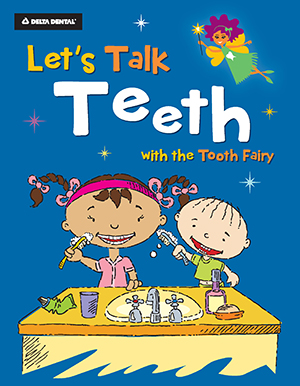We process your personal information to measure and improve our sites and service, to assist our marketing campaigns and to provide personalised content and advertising. You can opt-in by clicking the button "Accept Cookies" button to your right. Or, click the link to learn more about our Online Privacy Policy.
Wellness Resources
Welcome to our Wellness Resource library. Get the facts that you need on the dental issues that affect you and your family. Download oral health rack cards, browse oral health videos, and more!
Oral Health Resources
Oral Health Wellness Cards
In need of oral health posters, wellness cards, or flyers to hand out to your patients, clients, or kids?
All of Delta Dental of New Mexico's materials are available for download and use below.
Dentists are Disease Detectives
The Changing Face of Oral Cancer
Tooth Wisdom Throughout the Years
The Link: Oral Health and Diabetes
Healthy Lunches School Fuel for Kids
Eating Disorders Affect Oral Health
Maintaining Your Childhood Smile
Bringing Smiles to Children with Special Health Care Needs
Medications Can Affect Oral Health
Always Make Time for Senior Oral Health
Oral Health Videos
As part of our work with dental practices across our community, we've created a variety of videos that cover a wide range of topics important to oral health.
You can access free educational videos like these ones, as well as videos about Delta Dental of New Mexico on our YouTube Channel.
Need materials on a specific topic not yet featured? Contact us and we'll find you great Delta Dental resources from across our partner states.






Oral Health Teaching Tools for Children
The earlier children learn about taking care of their teeth, the better!
Here are some fun worksheets and tools to teach kids about oral health.
- Brushing & Flossing Chart
- Brushing and Reading Chart
- Choose the Healthy Foods
- Draw Yourself Brushing Your Teeth
- Follow the Floss
- Fill in the Blanks with Happy Tooth
- Healthy Body & Mind Coloring Page
- Tooth Fairy Connect the Dots
- Write a Letter to the Tooth Fairy
- Oral Health Book for Kids
- Let's Talk Teeth Coloring Book - English
- Hablemos de dientes con el Hada de los Dientes - Spanish
- Delta Dental Bookmark


Since 1998, Delta Dental has annually conducted the Original Tooth Fairy Poll® as a fun way to gauge how generous the tiny fairy has been in the previous year. The poll asks parents about their children’s dental behaviors, such as how often they visit the dentist and what they know about tooth decay. As a result of these surveys, the Tooth Fairy has gathered many interesting tidbits to share with parents and kids alike!
Additional Oral Health Resources
Oral Health
Looking for more information about oral and overall health? Visit the following websites to access additional information!
Delta Dental is passionate about oral health and its importance to families. For over 50 years, member companies have worked to improve oral health and hygiene by emphasizing preventive care. The oral health and wellness section of the Association's national website provides important information about adult oral health, children's oral health and even oral cancer.
Created by the American Dental Association, MouthHealthy explores oral health across all life stages in a fun, easy-to-use and informative manner.
The American Dental Association (ADA) is the world's largest and oldest dental association. The organization was formed in 1859 and has more than 157,000 members. The ADA website includes an A–Z listing of health topics affecting oral health.
The Children's Dental Health Project (CDHP) is an advocacy group working to advance policies that improve children's access to oral health. The CDHP website has news on the latest issues affecting children's oral health and resources for children's health information.
The National Institute of Dental and Craniofacial Research (NIDCR) aims to improve oral health through research, research training and distribution of health information. The NIDCR website has publications and information on many common dental afflictions.
The Dr. Samuel D. Harris National Museum of Dentistry, based in Baltimore, MD, is affiliated with the Smithsonian Institute. This dental health museum has interactive exhibits that feature the history of dentistry and modern dental research.
The National Maternal and Child Oral Health Resource Center (OHRC) partners with states and communities to address children's oral health issues. The OHRC website has educational resources for parents and educators.
General Health
Centers for Disease Control (CDC) is a government organization that aims to improve health and quality of life by preventing illness and injury. The CDC website has extensive information on health topics ranging from diseases to workplace safety.
National Institutes of Health (NIH) is a federal agency conducting and supporting medical research. The NIH website has comprehensive information on many health topics as well as information on current research.
HealthFinder.gov was developed by the U.S. Department of Health and Human Services to provide health information to consumers. The website features many interactive tools for personalized health advice.
The National Health Observances section of the HealthFinder website profiles the days, weeks or months dedicated to raising awareness of particular health concerns.
As the name suggests, KidsHealth provides reader-friendly health information for children. KidsHealth contains three sections adapting information for parents, kids and teenagers.


